
Al-Qaeda is a Sunni pan-Islamist militant organization led by Salafi jihadists who self-identify as a vanguard spearheading a global Islamist revolution to unite the Muslim world under a supra-national Islamic state known as the Caliphate. Its members are mostly composed of Arabs, but also include other peoples. Al-Qaeda has mounted attacks on civilian and military targets in various countries, including the 1998 United States embassy bombings, the 2001 September 11 attacks, and the 2002 Bali bombings; it has been designated as a terrorist group by the United Nations Security Council, the North Atlantic Treaty Organization (NATO), the European Union, and various countries around the world.

Opposition to the Iraq War significantly occurred worldwide, both before and during the initial 2003 invasion of Iraq by a United States–led coalition, and throughout the subsequent occupation. Individuals and groups opposing the war include the governments of many nations which did not take part in the invasion, including both its land neighbors Canada and Mexico, its NATO allies in Europe such as France and Germany, as well as China and Indonesia in Asia, and significant sections of the populace in those that took part in the invasion. Opposition to the war was also widespread domestically.

Ansar al-Islam in Kurdistan, simply called Ansar al-Islam, also nicknamed the Kurdish Taliban, is a Kurdish Islamist militant and separatist group. It was established in northern Iraq around the Kurdistan Region by Kurdish Islamists who were former Taliban and former Al-Qaeda members, coming back from Afghanistan, in 2001. Its motive is to establish an Islamic state around the Kurdistan region and to protect Kurdish people. It imposed strict Sharia in villages it controlled around Byara near the Iranian border. Its ideology follows a traditionalist interpretation of the Quran and Salafism.

Islamic terrorism refers to terrorist acts with religious motivations carried out by fundamentalist militant Islamists and Islamic extremists.

Jama'at al-Tawhid wal-Jihad, which may be abbreviated as JTJ or Jama'at, was a Islamic extremist Salafi jihadist terrorist group. It was founded in Jordan in 1999, and was led by Jordanian national Abu Musab al-Zarqawi for the entirety of its existence. During the Iraqi insurgency (2003–11), the group became a decentralized network with foreign fighters with a considerable Iraqi membership.
Criticism of the war on terror addresses the morals, ethics, efficiency, economics, as well as other issues surrounding the war on terror. It also touches upon criticism against the phrase itself, which was branded as a misnomer. The notion of a "war" against "terrorism" has proven highly contentious, with critics charging that participating governments exploited it to pursue long-standing policy/military objectives, reduce civil liberties, and infringe upon human rights. It is argued by critics that the term war is not appropriate in this context, since there is no identifiable enemy and that it is unlikely international terrorism can be brought to an end by military means.

An insurgency began in Iraq after the 2003 U.S.-led invasion, and lasted throughout the ensuing Iraq War which lasted from 2003 until 2011. The first phase of the insurgency began shortly after the 2003 invasion and before the establishment of the new Iraqi government. From around 2004 to May 2007, Iraqi insurgents primarily targeted the American-led coalition forces, and later also targeted Iraqi security forces.
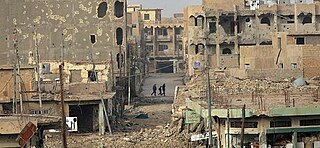
The Iraqi civil war was a civil war fought mainly between the Iraqi government along with American-led coalition forces and various sectarian armed groups, mainly Al Qaeda in Iraq and the Mahdi Army, from 2006 to 2008. In February 2006, sectarian tensions in Iraq escalated into a full-scale civil war after the bombing of the Al-Askari Shrine by the Sunni organization Al-Qaeda in Iraq. This set off a wave of reprisals by Shia militants on Sunni civilians, followed by Sunni counterattacks on Shia civilians. In 2006, the Secretary General of the United Nations declared that if patterns of discord and violence continued to prevail, the Iraqi state was in danger of breaking up. In a 10 January 2007 address to the American people, President George W. Bush stated that "80% of Iraq's sectarian violence occurs within 30 miles (48 km) of the capital. This violence is splitting Baghdad into sectarian enclaves, and shakes the confidence of all Iraqis.". The conflict escalated over the next several months until by late 2007, the National Intelligence Estimate described the conflict as having elements of a civil war. In 2008, during the Sunni Awakening and the U.S. troop surge, violence declined dramatically. However, an insurgency by Al-Qaeda in Iraq continued to plague Iraq following the U.S. withdrawal from the country in late 2011. In June 2014 the Islamic State of Iraq and the Levant, the successor of Al-Qaeda in Iraq, launched a major military offensive in Iraq and declared a self-proclaimed worldwide Islamic caliphate, leading to a full-scale war mainly between Iraq and ISIL from 2013 to 2017 in which Iraq declared full victory against the terrorist group.

The rationale for the Iraq War, both the 2003 invasion of Iraq and the subsequent hostilities, was controversial. The George W. Bush administration began actively pressing for military intervention in Iraq in late 2001. The primary rationalization for the Iraq War was articulated by a joint resolution of the United States Congress known as the Iraq Resolution. The US claimed the intent was to "disarm Iraq of weapons of mass destruction, to end Saddam Hussein's support for terrorism, and to free the Iraqi people".
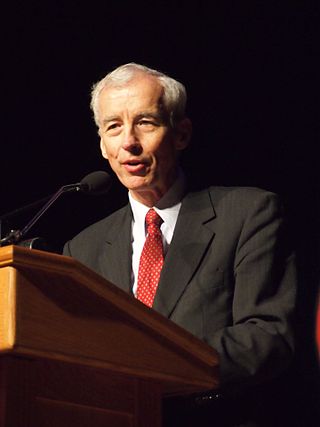
Paul R. Pillar is an academic and 28-year veteran of the Central Intelligence Agency (CIA), serving from 1977 to 2005. He is now a non-resident senior fellow at Georgetown University's Center for Security Studies, as well as a nonresident senior fellow in the Brookings Institution's Center for 21st Century Security and Intelligence. He was a visiting professor at Georgetown University from 2005 to 2012. He is a contributor to The National Interest.
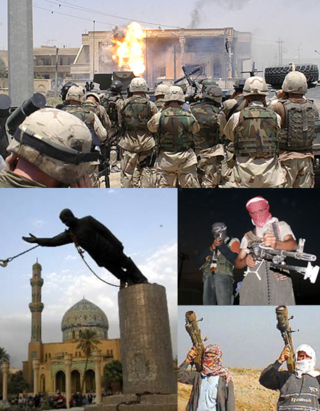
The Iraq War was a protracted armed conflict in Iraq from 2003 to 2011 that began with the invasion of Iraq by the United States-led coalition that overthrew the Iraqi government of Saddam Hussein. The conflict continued for much of the next decade as an insurgency emerged to oppose the coalition forces and the post-invasion Iraqi government. US troops were officially withdrawn in 2011. The United States became re-involved in 2014 at the head of a new coalition, and the insurgency and many dimensions of the armed conflict are ongoing. The invasion occurred as part of the George W. Bush administration's war on terror following the September 11 attacks, despite no connection between Iraq and the attacks.
This article is a chronological listing of allegations of meetings between members of al-Qaeda and members of Saddam Hussein's government, as well as other information relevant to conspiracy theories involving Saddam Hussein and al-Qaeda.
Jihadism is a neologism which is used in reference to "militant Islamic movements that are perceived as existentially threatening to the West" and "rooted in political Islam." It has been applied to various insurgent Islamic extremist, militant Islamist, and terrorist individuals and organizations whose ideologies are based on the Islamic notion of jihad. It has also been applied to various Islamic empires in history, such as the Umayyad Caliphate and the Ottoman Empire, who extensively campaigned against non-Muslim nations in the name of jihad.

Abu Musab al-Zarqawi, born Ahmad Fadeel al-Nazal al-Khalayleh, was a Jordanian jihadist who ran a terrorist training camp in Afghanistan. He became known after going to Iraq and being responsible for a series of bombings, beheadings, and attacks during the Iraq War, reportedly "turning an insurgency against US troops" in Iraq "into a Shia–Sunni civil war". He was sometimes known by his supporters as the "Sheikh of the slaughterers".

The war on terror, officially the Global War on Terrorism (GWOT), is a global counterterrorism military campaign initiated by the United States following the September 11 attacks and is also the most recent global conflict spanning multiple wars. The main targets of the campaign were militant Islamist and Salafi jihadist armed organisations such as Al-Qaeda, the Islamic State, and their international affiliates, which were waging military insurgencies to overthrow governments of various Muslim-majority countries. Other major targets included the Ba'athist regime in Iraq, which was toppled during an invasion in 2003, and various militant factions that fought during the ensuing Iraqi insurgency. The "war on terror" was officially declared over in May 2010 and again in May 2013. Other American military campaigns during the 2010s have also been considered part of the "war on terror" by individuals and the media. With the major wars over and only low-level fighting in some places, the end of the war in Afghanistan in August 2021 marks for most people the end of the war on terror, or at least its main phase. The United States Military ceased awarding the National Defense Service Medal for the Global War on Terror on December 31, 2022. Some consider the campaign to be ongoing.
Pakistan's role in the War on Terror is a widely discussed topic among policy-makers of various countries, political analysts and international delegates around the world. Pakistan has simultaneously received allegations of harbouring and aiding terrorists and commendation for its anti-terror efforts. Since 2001, the country has also hosted millions of Afghan refugees who fled the war in Afghanistan.
The War on Terror is the campaign launched by the United States of America in response to the September 11 attacks against organizations designated with terrorism. The campaign, whose stated objective was eliminating international terrorism, began in 2001. The following is a timeline of events linked to the War on Terror.
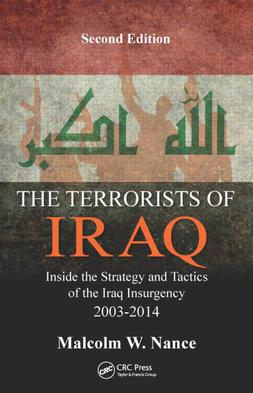
The Terrorists of Iraq: Inside the Strategy and Tactics of the Iraq Insurgency 2003–2014 is a nonfiction book about the Iraqi insurgency, written by U.S. Navy retired cryptology analyst Malcolm Nance. It was published by CRC Press in 2014. The book discusses the terrorist evolution of the Iraqi insurgency which led to the formation of Islamic State of Iraq and the Levant (ISIS). Nance cites the 2003 Iraq war by the Bush Administration for causing regional instability. He criticizes Coalition Provisional Authority leader Paul Bremer. The book emphasizes lessons the U.S. neglected to learn from the Vietnam War, the Iraqi revolt against the British, and the South Lebanon conflict. Nance writes in favor of the Iran nuclear deal framework by the Obama Administration, saying it is in the interests of all parties involved.
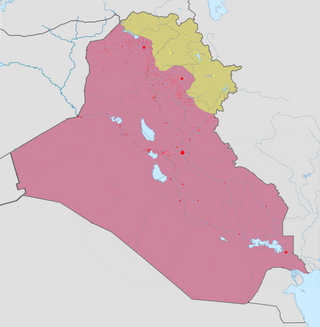
The Iraqi conflict is an armed conflict that began with the 2003 invasion of Iraq by a United States-led coalition that toppled the government of Saddam Hussein. The conflict continued as an insurgency emerged to oppose the occupying forces and the post-invasion Iraqi government. The United States officially withdrew from the country in 2011 but became reinvolved in 2014 at the head of a new coalition. The main phase of the conflict ended following the defeat of the Islamic State of Iraq and the Levant (ISIL) in the country in 2017, but a low-level ISIL insurgency is ongoing in the rural north parts of the country.
The history of the Islamic State began with the group's foundation in 1999 by Jordanian Salafi jihadist Abu Musab al-Zarqawi under the name Jamāʻat al-Tawḥīd wa-al-Jihād. In a letter published by the US State Department in February 2004, Zarqawi wrote that jihadists should use bombings to start an open sectarian war in Iraq so that Sunnis from other countries would mobilize against the assassinations carried out by Shias, specifically the Badr Organisation, against Ba'athists and Sunnis. The Islamic State would eventually grow to control territory with a population of millions.
















